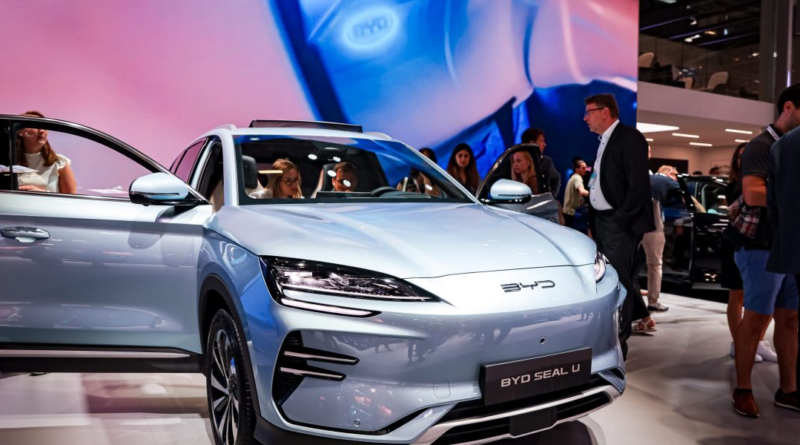A BYD-only showroom is coming to Berlin as carmaker targets German rivals
BYD is sounding the drum on its march into Europe. So far, the main result of those war cries has been to leave legacy carmakers in a “state of shock” at the Warren Buffett–backed group’s ultralow prices.
Now manufacturers and curious customers in Europe will get a fresh opportunity to view the competition up close.
German dealership Stern Auto will launch a BYD-only dealership in Berlin, Reuters reports.
Stern Auto, which has exclusive rights to sell BYD in East Germany, plans to showcase the group’s five models at the store as it aims to foster brand recognition in a market that has long favored local manufacturers.
BYD, which still makes the vast majority of its sales in China, surpassed Tesla for EV sales in the fourth quarter of 2024. It also beat German giant Volkswagen to become the biggest automaker in China in 2023.
The group is now looking west as part of its ambitious plans to shift more units of its cars amid an ongoing price war with Tesla and other automakers.
In October, BYD announced its distribution partners for the German market, which will see the group’s cars don showrooms in cities including Berlin, Munich, Hamburg, and Frankfurt.
The group’s newly announced factory in Hungary is expected to start churning out cars in the next three years in a bid to avoid steep import tariffs. In the meantime, it has also earmarked special cargo ships to transport EVs to Europe. The first ship carrying 7,000 cars set sail in January.
However, the carmaker will face several challenges as a new market entrant to Europe.
BYD fighting for brand recognition
Beyond potential connectivity issues and the prospect of higher labor costs outside its native China, a major obstacle to conquering Europe highlighted by analysts has been the often unshakable brand loyalty of drivers who have grown up with Volkswagen, Renault, or Mercedes-Benz on their driveways.
A September study by Bloomberg Intelligence found three out of five European drivers expected to stick with their current brand; only 17% expected to switch to a new automaker.
“I do believe that the credibility and trust that European brands enjoy will help them defend their inventory against new entrants,” Fabian Brandt, head of automotive and industrial goods at management consultancy Oliver Wyman, told Fortune last week.
“It’s also very much about local presence and local trusts and dealerships, and all that is relatively hard to build.”
BYD has sought to narrow a brand recognition gap by doubling down on marketing and advertising to familiarize Europeans with its growing presence on the continent.
“One of the biggest topics for BYD is that it is not that familiar to German customers,” Oliver Hein, head of BYD for Stern Auto, told Reuters. However, he told the publication that recognition was growing “exponentially,” thanks to the group’s increased marketing.
Beyond persuading Germans and other Europeans to buy its cars, BYD also faces regulatory headaches.
The carmaker is the subject of a major EU antitrust investigation into its cut-price cars, with the entry-level Seagull priced at $11,000.
European Commission President Ursula von der Leyen pledged to crack down on carmakers offering cheaper models in Europe thanks to subsidies enacted in their home countries, with BYD the obvious target of this frustration.




